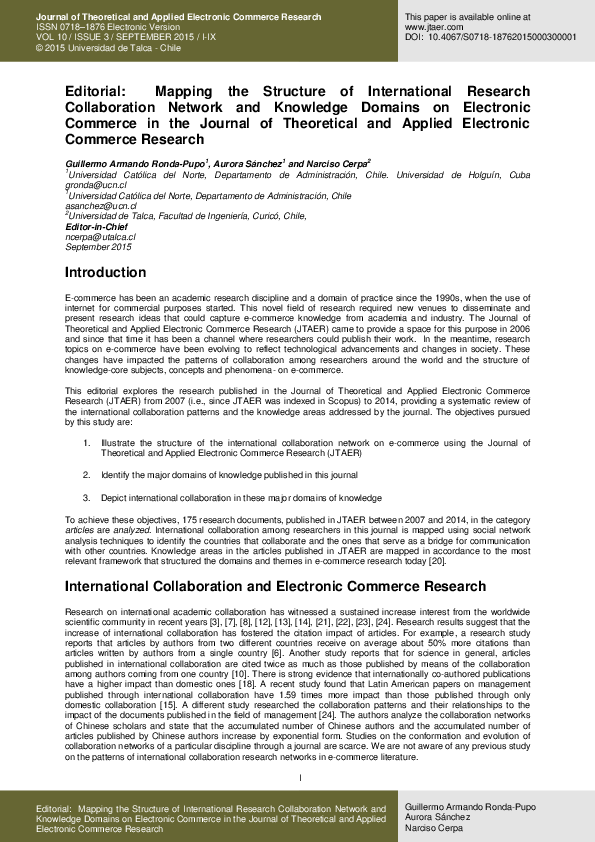Enhancing Traceability in Wine Supply Chains through Blockchain: A Stackelberg Game-Theoretical Analysis
IF 5.1
3区 管理学
Q1 BUSINESS
Journal of Theoretical and Applied Electronic Commerce Research
Pub Date : 2023-11-22
DOI:10.3390/jtaer18040108
引用次数: 0
Abstract
Blockchain technology has been adopted to improve traceability and authenticity in wine supply chains (WSCs). However, whether through outsourcing or self-implementation of a blockchain-based wine traceability system (BTS), there are significant costs involved, as well as concerns regarding consumer privacy. Motivated by observations of real-world practice, we explore the value of blockchain in enhancing traceability and authenticity in WSCs through a Stackelberg game-theoretical analysis. By comparing the equilibrium solutions of the scenarios with and without blockchain, we uncover the value of blockchain in tracing wine products. Our findings show that blockchain adoption can increase WSC prices under certain conditions. We derive the threshold for a third-party BTS service fee that determines blockchain adoption for tracing wine products and reveal the moderating effect of consumer traceability preferences and privacy concerns. Furthermore, the investigation of who should lead the implementation of BTS finds that the equal cost sharing between the manufacturer and the retailer results in no difference in BTS implementation leadership. Otherwise, the manufacturer always benefits from taking the lead in the implementation of BTS, and the retailer should undertake a leadership role in BTS implementation if they need to bear higher costs.通过区块链提高葡萄酒供应链的可追溯性:一个Stackelberg博弈论分析
区块链技术已被用于提高葡萄酒供应链(WSCs)的可追溯性和真实性。然而,无论是通过外包还是自行实施基于区块链的葡萄酒可追溯系统(BTS),都涉及到巨大的成本,以及对消费者隐私的担忧。基于对现实世界实践的观察,我们通过Stackelberg博弈论分析,探索了区块链在增强WSCs可追溯性和真实性方面的价值。通过比较有区块链和无区块链场景的平衡解,我们揭示了区块链在追踪葡萄酒产品方面的价值。我们的研究结果表明,在某些条件下,采用区块链可以提高WSC的价格。我们得出了第三方BTS服务费用的门槛,该门槛决定了区块链用于追踪葡萄酒产品的采用,并揭示了消费者可追溯性偏好和隐私问题的调节作用。此外,对谁应该领导BTS实施的调查发现,制造商和零售商之间的成本分担相等,导致BTS实施领导没有差异。否则,制造商总是因为率先实施BTS而受益,而零售商如果需要承担更高的成本,则应该在实施BTS方面发挥领导作用。
本文章由计算机程序翻译,如有差异,请以英文原文为准。
求助全文
约1分钟内获得全文
求助全文
来源期刊
CiteScore
9.50
自引率
3.60%
发文量
67
期刊介绍:
The Journal of Theoretical and Applied Electronic Commerce Research (JTAER) has been created to allow researchers, academicians and other professionals an agile and flexible channel of communication in which to share and debate new ideas and emerging technologies concerned with this rapidly evolving field. Business practices, social, cultural and legal concerns, personal privacy and security, communications technologies, mobile connectivity are among the important elements of electronic commerce and are becoming ever more relevant in everyday life. JTAER will assist in extending and improving the use of electronic commerce for the benefit of our society.

 求助内容:
求助内容: 应助结果提醒方式:
应助结果提醒方式:


